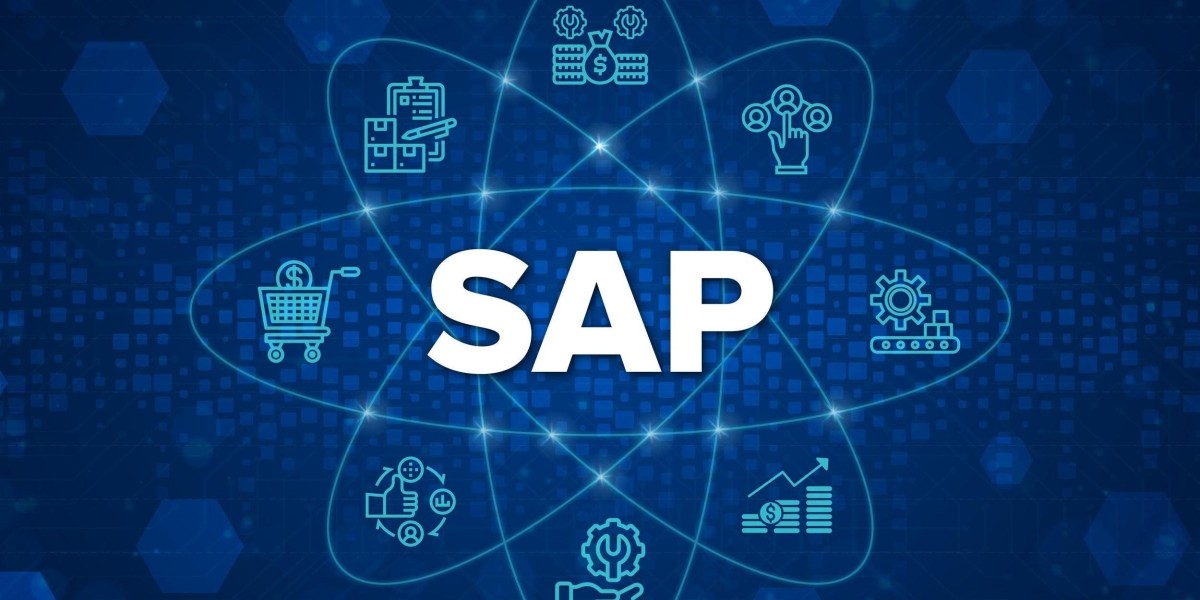In the evolving landscape of finance and business, the ability to combine technical skills with accounting knowledge has become a career-defining factor. Companies no longer rely only on traditional accounting methods; they now embrace advanced enterprise solutions to streamline processes, improve accuracy, and enhance reporting. Enterprise Resource Planning (ERP) systems, particularly SAP, have emerged as a cornerstone of this transformation. For aspiring accountants, this shift means that professional growth depends not only on understanding financial principles but also on mastering the systems that bring those principles to life. Enrolling in a sap fico course in mumbai has therefore become a critical step for students and professionals who want to align their skills with modern requirements.
Understanding ERP and Its Relevance in Accounting
ERP systems are designed to integrate different business processes into a unified platform. For accountants, this means moving beyond ledgers and journal entries into a world where financial transactions are linked with procurement, sales, payroll, and even inventory management. With ERP, the accounting department gains visibility into how each business function impacts financial outcomes. This ability to see the bigger picture is why finance professionals are expected to be comfortable with ERP technologies.
A structured sap fico course in mumbai introduces learners to the Financial Accounting (FI) and Controlling (CO) modules, which are at the heart of the SAP ERP ecosystem. These modules allow accountants to manage reporting, track costs, and analyze financial performance with greater efficiency. By learning ERP, students transition from being traditional accountants to becoming strategic partners in organizational growth.
Why SAP FICO Is the Preferred ERP Module for Accountants
Among the many ERP systems available today, SAP has established itself as the global leader. Within SAP, the FICO module is specifically designed for finance and controlling tasks. Finance professionals equipped with this knowledge are able to manage accounts payable, receivable, asset accounting, and general ledgers while also supporting internal reporting and decision-making.
When students pursue a sap fico course in mumbai, they learn how to handle real-world financial workflows digitally. This includes preparing balance sheets, calculating profitability, and ensuring compliance with financial regulations. Since companies across industries use SAP, proficiency in FICO expands career opportunities beyond traditional accounting into diverse sectors like manufacturing, retail, logistics, and consulting.
How ERP Training Enhances Accounting Skills
One of the main reasons ERP training is valuable for accountants is its ability to improve accuracy and efficiency. Traditional methods often leave room for errors, duplication, or delays in reporting. By mastering ERP systems through a sap fico course in mumbai, students gain the following advantages:
Automation of Processes: Manual entries are minimized, reducing human error.
Integration of Data: Financial data connects seamlessly with operational departments, allowing accountants to analyze the bigger picture.
Real-Time Reporting: Financial statements and reports can be generated instantly, supporting better decision-making.
Compliance and Audit Readiness: ERP ensures data accuracy, making audits smoother and less time-consuming.
These benefits not only help accountants perform better but also position them as indispensable contributors to organizational success.
Entry-Level Roles After ERP Training
ERP training creates immediate career pathways for finance graduates and young professionals. Completing a sap fico course in mumbai opens up entry-level opportunities such as:
SAP FICO End User: Handling day-to-day transactions within the system.
Accounts Executive: Using ERP systems to manage accounts payable and receivable.
Junior Analyst: Assisting in financial data reporting and analysis.
ERP Support Associate: Supporting consultants in troubleshooting and implementing processes.
These roles provide the perfect start for building experience with ERP while applying accounting principles in a modern context.
Mid-Level and Advanced Career Growth
With experience and certification, professionals can advance into more specialized and rewarding positions. ERP expertise doesn’t just add technical knowledge; it builds credibility that employers value. After gaining hands-on experience from a sap fico course in mumbai, accountants can move into roles like:
SAP FICO Consultant: Customizing and implementing SAP solutions for businesses.
Business Analyst (Finance): Bridging the gap between management requirements and ERP system solutions.
Finance Manager with ERP Expertise: Overseeing teams while leveraging SAP for performance tracking.
Solution Architect (Finance): Designing ERP solutions that integrate finance with other business processes.
Such roles often come with greater responsibilities, higher salaries, and opportunities to work on international projects.
Industries That Value ERP-Trained Accountants
ERP-trained professionals are not limited to a single industry. The skills gained from a sap fico course in mumbai are in demand across multiple sectors. Industries actively hiring ERP-skilled accountants include:
Manufacturing: Linking production with financial reporting.
Retail: Managing sales, purchases, and accounts in real time.
Banking and Financial Services: Ensuring compliance and accurate reporting.
Logistics and Supply Chain: Streamlining cost tracking and profit analysis.
Healthcare and Pharmaceuticals: Managing regulatory compliance in finance operations.
This diversity ensures that accountants with ERP knowledge are always in demand, regardless of the economic climate.
Skills That Complement ERP Training
While ERP expertise is vital, building complementary skills ensures greater career success. Employers prefer accountants who combine technical knowledge with soft skills and analytical thinking. Alongside completing a sap fico course in mumbai, students should also focus on:
Analytical Skills: Interpreting financial data for insights.
Communication Skills: Explaining technical processes to non-finance colleagues.
Problem-Solving Abilities: Addressing challenges in ERP implementation.
Adaptability: Staying updated with upgrades in SAP and changing business environments.
The blend of ERP training and these additional skills sets students apart in competitive job markets.
Steps to Build an ERP-Driven Accounting Career
For finance professionals aiming to maximize their potential, following a structured path is essential. Here’s how to get started:
Enroll in a sap fico course in mumbai – Gain foundational knowledge of financial and controlling modules.
Practice Hands-On Learning – Use simulation environments to apply concepts.
Pursue Certification – Validate your skills with recognized certifications.
Seek Internships or Projects – Gain practical exposure to ERP workflows.
Start with Entry-Level Roles – Build experience before moving into consulting or advanced profiles.
Continue Updating Skills – Stay informed about SAP innovations and ERP advancements.
This pathway ensures steady growth and long-term employability in finance.
The Future of ERP in Accounting
As businesses increasingly rely on digital systems, the demand for ERP-trained accountants will only grow. Those who take the initiative to complete a sap fico course in mumbai will be well-prepared to meet global career opportunities. With cloud-based ERP solutions gaining popularity, the scope for finance professionals is expanding beyond traditional office roles into global project implementations.
Future trends shaping ERP careers include:
Cloud ERP Adoption – Allowing flexibility and global accessibility.
Integration with Analytics – Using data for predictive financial insights.
Global Finance Management – Supporting multinational companies in handling cross-border transactions.
These developments confirm that ERP training will remain central to accounting careers for years to come.
Final Thoughts
ERP training has become a necessity for anyone looking to thrive in the accounting profession. It equips finance professionals with the tools to automate processes, enhance reporting, and support business strategy. By completing a sap fico course in mumbai, students not only learn how to manage financial data effectively but also gain an edge in a competitive job market.
The career options range from entry-level roles like end users and analysts to advanced positions such as consultants and architects. Industries across the spectrum continue to seek ERP-trained professionals, making this path both stable and versatile. With continuous learning and practical experience, ERP training ensures that your accounting career is not only relevant today but also future-ready.







